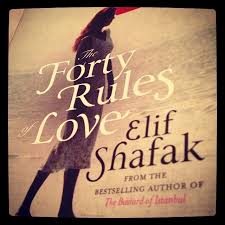•SOCIOLOGICAL THEORIES FOR THE DEVELOPMENT OF SELF
• What is SELF:
The sum total of people conscious perception of their own identity as distinct from others is the self.
§Three step process
i.Our perception how we look to others
ii.Our perception of their judgement
iii.Our feeling about their judgement
§As the mirror gives an image of physical self, society gives an image of social self
§We learn who we are by interacting with people
§Self is the product of our social interaction with other people
•
•MEAD AND GENERALIZED OTHERS
•To internalize the attitudes of others
•Generalized others
•Composite of expectations one believes other hold towards me
•Personality expectations, My expectations from you, your family’s expectations
•To internalize those expectations
•THREE STAGES IN THE PROCESS OF ROLE-TAKING AND ROLE PLAYING
I.PREPARATORY STAGE:
Child imitates the behaviour without any real understanding
II.PLAY STAGE:
Some understanding of the behaviour but switches role. Understand and respond to symbols
III.GAME STAGE:
Consistent and purposeful role-playing and child has the ability to sense the roles of the others. Response to imagined point of view
•By internalizing the expectations of others one develops a concept of the self
•Expectations of the community
•Sophistication develops with maturity
•Self as a centerpiece
•As people mature self changes and show a greater concern about the reactions of others
DISADVANTAGES OF MEAD’S THEORY
•Over emphasized the expectations
•Reference groups keep on changing
•Expectations can be manipulated by expectant
•Expectations may be irrational
•Sophistication is a gradual process
•COGNITIVE THEORY OF DEVELOPMENT
•FREUD AND ANTISOCIAL SELF
•Society and self always at conflict with one another
•Self is a product of the ways in which basic human motives and impulses are denied and repressed by the society
•
•Self is divided into three parts
•
•SUPER EGO:
Social ideals and values i.e. conscious of the individual
•
•EGO:
Conscious and rational part of the self (Control Centre)
•
•ID or Identity:
Pool of instinctive and unsocialized desires, impulses, selfish and antisocial
•ID is continuously at war with superego
•ID is usually repressed
•Sometimes come out in defiance and creates a burden of guilt that is difficult for the self to carry
ROLE AND STATUS
•ADVANTAGES & DISADVANTAGES OF ASCRIBED STATUS
•ADVANTAGES:
Smooth working of the society
Proper socialization
Little discomfort
•DISADVANTAGES:
Society is unable to take full advantage of the merits of the members of the society
•ADVANTAGES & DISADVANTAGES OF ACHIEVED STATUS
•ADVANTAGES:
Society takes full advantage of the merits of the members of the society
•DISADVANTAGES:
q Psychic costs
q Difficult to rationalize one’s lower status
q Favouritism, Nepotism
•MASTER STATUS
•Dominates all other statuses of an individual
•Primarily recognized by that status
•ROLE
•Role is the behavior expected from a person who holds a specific status
•TWO THINGS ARE IMPORTANT IN ROLE PLAYING
ü Perform the duties and claim the privileges of the role
ü Acquire the attitudes, feelings & expectations associated with a role
•
•ROLE SETS
•Different roles attached to an individual
•ROLE BEHAVIOUR:
The role is the behavior expected
Role behavior is the actual behavior of the one who holds a specific status
Difference between actual role and role behavior because of different socialization, different ways of seeing the same role and practical life is different from academics. Uniformity as well as diversity
•ROLE PERSONALITY AND TRUE PERSONALITY
•True personality should harmonize with role personality
•However, difference arises because of imperfect role preparation, Uncertainty about future roles
•In Ascribed statuses difference is very little but in achieved statuses more and more problems
•ROLE STRAIN
•Inability of the individual to meet one’s role responsibilities due to inadequate role preparation
•Role transitional difficulties due to age
•Role Conflict
•Compartmentalization
•Adjudication
•Rationalization
•Final Status
•Death
•
•No role but only status
•
















